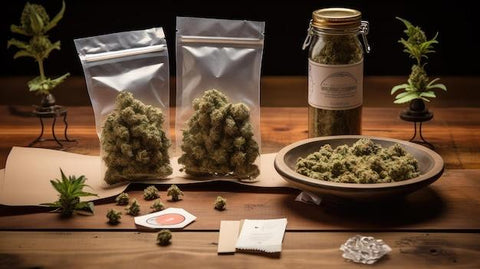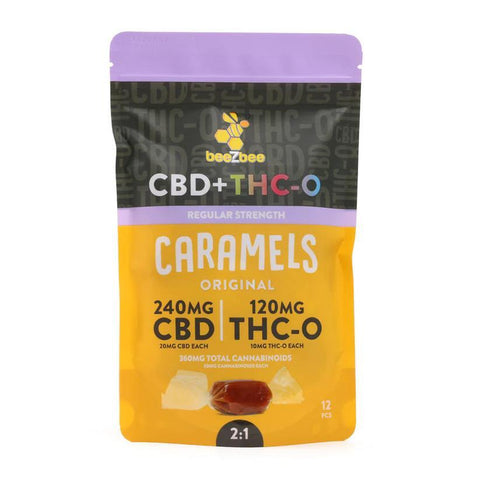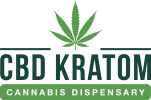As cannabis continues to evolve in both popularity and understanding, two relatively novel cannabinoids have emerged into the spotlight: THC-O and THCP. With their rising prominence, questions and misconceptions abound regarding their effects, benefits, and overall utility. In this comprehensive exploration, we delve into the realm of THC-O vs. THCP, aiming to dispel common myths and misconceptions surrounding these compounds.
Through a balanced examination of scientific research, anecdotal evidence, and industry insights, we aim to find the distinct characteristics of each cannabinoid, shedding light on their potential benefits and differences. By unraveling the complexities of THC-O and THCP, we hope to provide clarity for consumers seeking to navigate the diverse landscape of cannabis derivatives.
What is THC-O?
THC-O, short for tetrahydrocannabinol-O-acetate, is a cannabinoid derived from Delta-9 THC. THC-O is essentially an ester form of Delta-9 THC, resulting from a chemical modification at the molecular level using acetic anhydride and sulfuric acid. This modification introduces an acetate molecule to the THC structure.
While THC-O shares many effects with Delta-9 THC and both metabolize into the same compound (THC-COOH) in the body, THC-O is distinct due to the presence of the acetate molecule. THC-O may potentially alleviate pain, induce a sense of relaxation, and mitigate stress.
What is THC-P?
THC-P is a cannabinoid present in hemp plants but in relatively lower concentrations. Tetrahydrocannabiphorol, its complete name, comprises just 0.1% of the overall cannabinoid profile in the plant.
As one of the more recent cannabinoids identified on the hemp scene, THCP was only unearthed by researchers in 2019. Despite its recent discovery, it has gained significant attention due to its unparalleled potency.
Initial research indicates that THCP might be 33 times more strong than Delta-9 THC. In theory, this suggests that 1mg of THCP could be comparable to 33 mg of Delta-9 THC.
Breaking Down THC-O vs. THCP: In-Depth Analysis of These Cannabinoids
Now let's explore the interesting histories and molecular mechanisms underlying these THCP vs. THC-O effects. Highlighted as a semi-synthetic marvel, THC-O is created by combining acetic anhydride and delta-8 THC from the hemp plant. Conversely, THCP is a naturally occurring compound that is present in small quantities in the hemp plant.
It's wise to practice caution when using them, even if their strong strength and rumblings of mystical experiences have made them popular in the cannabis community. Moreover, the advantages of THC-O vs. THCP are closely connected. While both cannabinoids may provide comparable benefits, there may be slight variations in the experience and effectiveness they offer.
Often, products are available that blend these cannabinoids to create an even more distinctive experience. However, if you're deciding between the two, it's worthwhile to assess which one better aligns with the specific benefits you seek.
Fact: Revealing is THCP Stronger than THC-O?

Ultimately, the issue of discomfort brings us to the comparison between THC-O effects and THCP effects to know which is stronger. Nearly every cannabinoid you encounter may offer some level of relief for soreness. However, determining which one excels in this regard remains challenging due to the limited research on the natural pain-relieving properties of THC-O and THCP.
Insufficient data prevents us from confidently declaring one superior to the other in terms of promoting overall well-being. Our understanding is primarily based on their observed similarities to Delta-9 and anecdotal accounts from individuals.
Nevertheless, it's worth noting that THCP holds more chances compared to THC-O, potentially requiring a smaller quantity to achieve comparable effects.
Let’s look at the other aspects here -
-
Structure Differences- Understanding the variances is essential for effectively measuring strength. THC-O and THCP are both derived from THC. They go through chemical modifications that have different effects. Unlike THC-O, THCP may interact with receptors differently owing to the way it is produced.
-
Psychoactive Potential: THC-O may be associated with psychotropic, which is generally regarded as a powerful high. However, it is vital to remember that the effects of THCP may differ. Although it is not as strong as THC-O, it does have potential.
-
Individual Variations: People's reactions to THCP vs. THC-O might differ depending on their biochemistry, amount levels, and sensitivity. What seems strong for one person might not have a similar effect on another.
-
Limited Scientific Data: The scientific data comparing THC-O vs. THCP is currently limited. Moreover, the existing research is still in its stages. Further investigation is necessary to gain a comprehensive understanding and draw definitive conclusions.
Finally, the strength comparison of THCP and THC-O is dependent on several aspects, making it a difficult task to determine the real strength of each cannabis. As research advances, a more complete understanding will likely emerge, bringing clarity to the THC-O vs. THCP debate.
Legal Consideration - Is THC-P Legal?
Having discussed the majority of the topics about THCP vs THC-O, let's now discuss the regulations that apply to these cannabinoids to prevent breaking any of them.
- Legal Status: Knowing the legal position of THCP and THC-O is the first step in our path. The legality of these cannabinoids varies greatly depending on where you live and the regulations in your area. While some areas welcome their use, others may be skeptical of them.
-
Regulatory Obstacles: Understanding the regulatory obstacles is vital as we move around the legal maze. Because cannabis-related regulations are dynamic and subject to frequent changes, it is important to stay updated in this setting.
- Changing Perspectives: Views on the legality of different CBD can differ as much as the chemicals themselves do. While certain jurisdictions may still be catching up on managing the complexity and uncertainty, others might have welcomed its usage and recognized the potential benefits.
- Industry Guidelines: Getting an understanding of industry standards provides further assurance. Customers might feel somewhat confident in the products of reputable brands and manufacturers because they often uphold strict quality and compliance requirements.
What Distinguishes THCP and THC-O From Regular THC?

A deeper understanding is needed of the perception of THC-O and THCP as stronger than traditional THC. In a lab environment, compounds containing Delta-8 THC are combined to create THC-O. The resulting chemical is around three times stronger than regular THC. Some people may compare it to psychedelic experiences because of the strong feelings of fulfillment and enthusiasm it induces.
THCP, on the other hand, is a naturally occurring cannabinoid found in cannabis plants. Characterized by an extended side chain of carbon, it is said to have up to 33 times stronger than regular THC. But that doesn't mean you feel 33 times more high. Your own body and other things in the plant can change how it affects you.
Despite being stronger than THC, both THCP and THC-O are distinct substances with unique characteristics and legal considerations. Anyone considering their use should consult with a medical expert, as our knowledge of their full implications remains incomplete.
Important Considerations For Selecting A High-Quality Product: THC-O vs. THCP
There are a few things to consider to make sure you're obtaining the safest cannabinoids or THC-O vs. THCP products. An overview is given below:
1. Source and Quality: Choose products made by reliable vendors who adhere to good manufacturing procedures. Seek out vendors who take the extra step to get the purity of their products examined by independent laboratories. Chemical structure is frequently available on the company's website and the product label.
2. Ingredients and Additives: Verify that the ingredient list contains no unfavorable additives or allergies. The quality components must be free of unnecessary additives and chemicals.
3. Legal Compliance: Make sure the product plays by the rules in your area. This is especially crucial for THC-O products, as their legal status can be a bit of a puzzle in different regions. Also, check if THCP is legal in your region.
4. User Reviews and Reputation: What are people saying? Take a look at consumer feedback on the brand and product. Gaining a real-world perspective can be similar to receiving guidance from friends.
5. Seek Advice from a Healthcare Professional: It's a good decision to speak with a healthcare professional if you're new to THC-O or THC-P products or if you have any health concerns. Based on your specific case, they could offer you personalized guidance.
Wrapping Up:
Now let's finish up this blog article! We've had a peek into the realms of THC-O vs. THCP, two cannabinoids with distinct personalities. THC-O effects and is comparable to a synthetic cannabinoid. Conversely, the remarkable natural substance THCP offers certain special advantages.
Dispelling misconceptions in this field requires accurate information. Learning improves wise decision-making. It's critical to keep up with the changes in the cannabis sector. Keeping it safe and legal, talking to the experts, and using THC-O and THCP with prudence are all important to us. Prevent any potential hiccups on the way, stay informed, and appreciate all the advantages!
Discover the power of synergy with our CBD Kratom THC-O offerings, expertly formulated to harmonize the benefits of CBD, Kratom, and THC-O for enhanced well-being.

